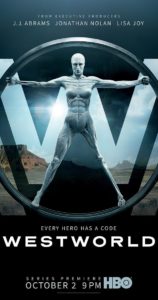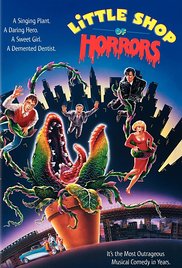One of the frustrations and beauties of the arts is that they are subjective. There is no quantifiable standards to most of that arts that can be applied for a good/bad judgment, it is matters of taste and opinion. What follows here are my opinions on how you differ the roles of Protagonist, Hero, and Anti-Hero. I realized that my definitions are not quite in line with what most people use and that’s just fine, but if they make sense to you, please feel free to use them.
When we talk about story these three terms get tossed about quite a bit; Hero, Protagonist, and Anti-Hero but I don’t feel everyone is using them in the same manner. I am going to discuss this in relation to the lead character of a story, but side stepping just what it means to be the lead character. That is a subject for its own essay.
A hero is a character whose goals and means are aligned with what is considered by society to be good. Certainly Superman fits the definition. His goals are justice, to protect those unable to protect themselves, and to bring wrong doers to justice. To achieve his goal Superman will not do evil. He defines that as no more violence than is required, to not kill, and so on. Many western ‘good guys’ are heroes. Will Kane in High Noon has the goal of saving the town from Frank Miller, and you know what sort of man Frank Miller is. However to achieve his goal he will not blow up the train with innocents aboard, he will not hide and gun Frank Miller down from ambush. The code of the hero binds him in means as tightly as it does in goals.
A protagonist is simply the lead character in a story who has a major objective and faces serious opposition in achieving those objectives. Morality has no place in the assignment of the category ‘protagonist.’ A Hero is often a protagonist, but a protagonist need not be a hero. Consider for example Walter Neff from the classic film Double Indemnity. His goals are clear, he wants the girl and he wants the money, these goals by themselves are neither good nor bad, but to achieve them he is willing to commit fraud and murder. Neff is no hero but he is clearly the protagonist.
Anti-Hero is the term that I think is most abused. Too often I see it applied to a protagonist that has amoral or immoral means and objectives. I have people describe Walter Neff from Double Indemnity as an anti-hero, or Walter White from Breaking Bad, but these characters while protagonists are not anti-heroes as I see that category. To me the anti-hero is someone who still has the hero’s objectives, but has abandoned the restrictions on how those objectives are achieved. A classic example of this is Harry Callahan in the Dirty Harry franchise of films. Callahan in Dirty harry never is self-serving, his goal is a societal good the reduction or elimination of crime, particularly violent crime. However to get to his end Harry will use any means at his disposal, torture for example ceases to be an objective wrong and becomes tool the anti-hero deems allowable for his just goal. Westerns and police drams lead the way in placing the anti-hero in the forefront of American Culture but the concept of a hero whose hands are not tied quickly spread fast throughout popular culture that now the very thought of a hero who will not make the ‘hard choices’ to save the day feels antiquated. Think about how much Captain America seems out of step with the world he now inhabits.



